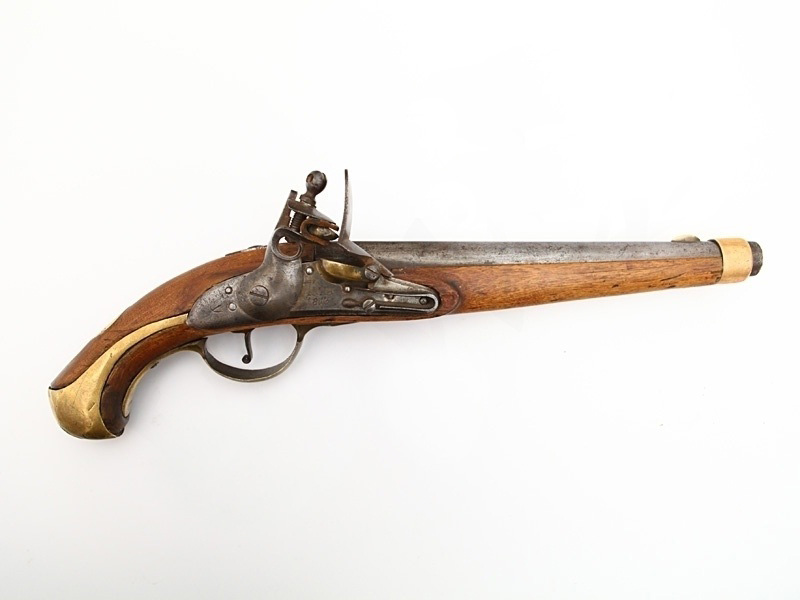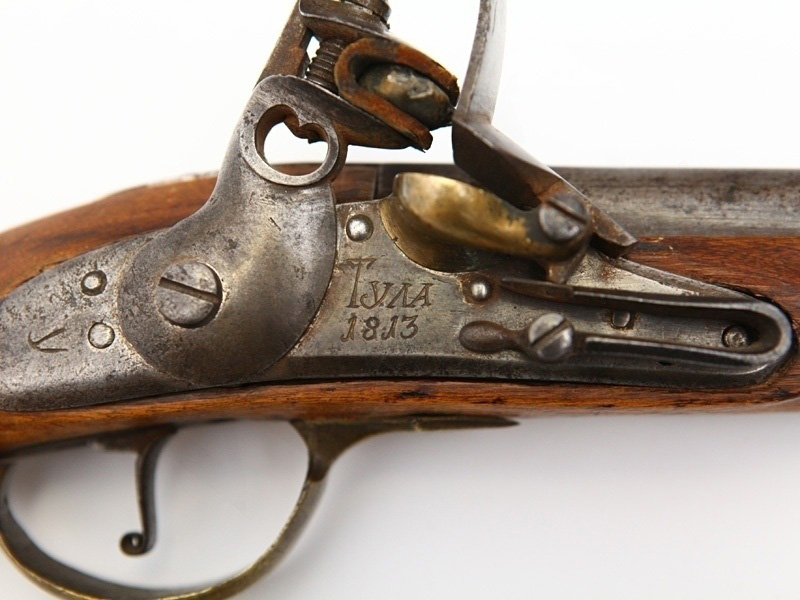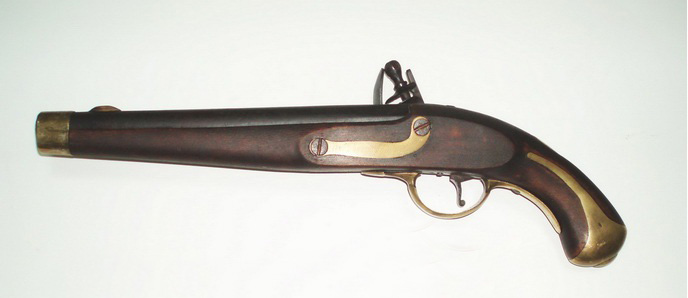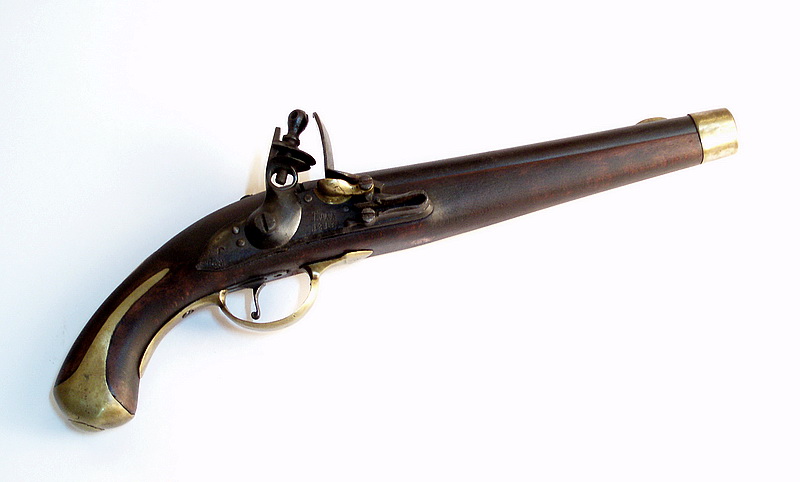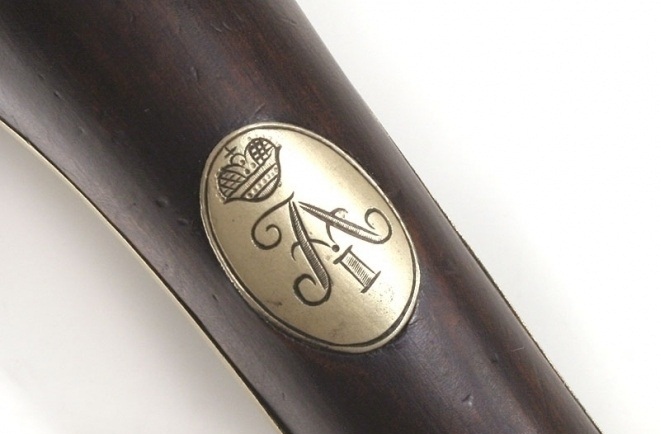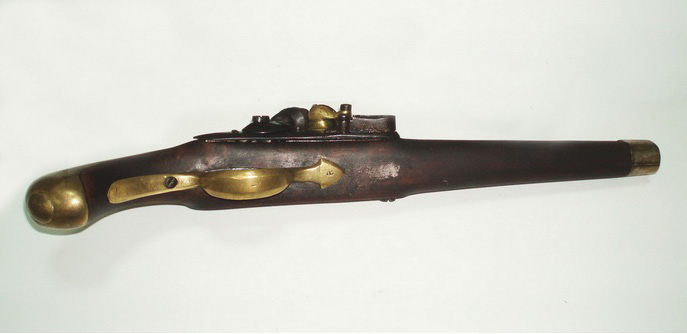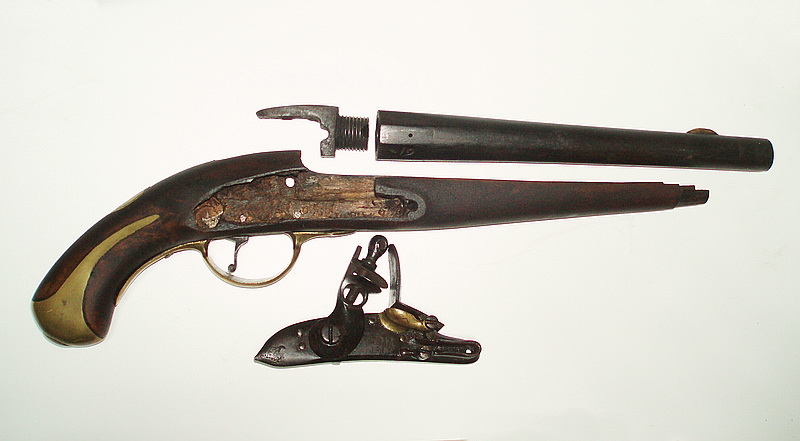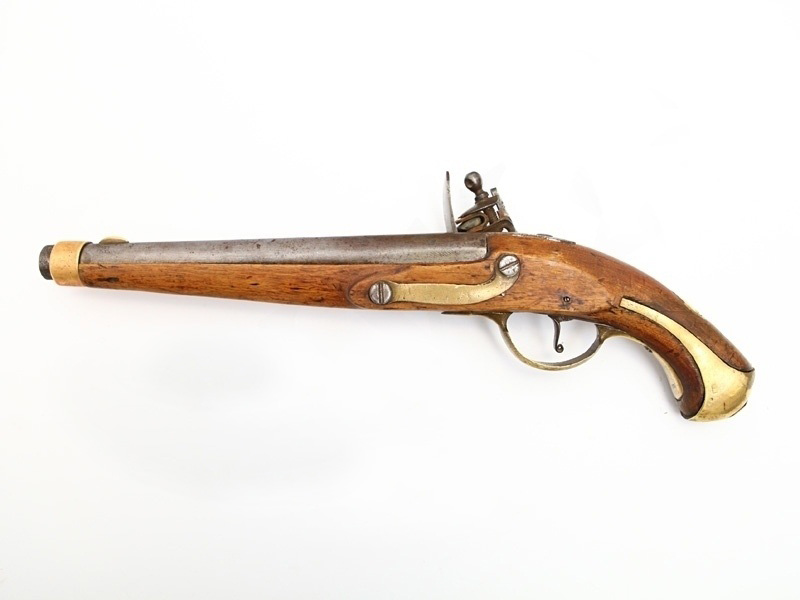
Russian Flintlock Pistol Model 1809 and its Variants
The
Russian flintlock pistol Model 1809 was created during the Russian army's
transition to a seven-line caliber (17.7 mm). The prototype was the Russian
flintlock pistol Model 1798. According to historical documents, on June 16,
1810, the production of carbines and pistols for cuirassier, dragoon, and hussar
regiments was ordered, based on the newly approved model, both of which were
equivalent, as well as the production of infantry rifles with a caliber equal to
seven fractions of an English inch. Although this model was approved by the
sovereign in 1809, its serial production probably did not begin until mid-1810,
although the pistol was produced earlier, during testing and preparation for
weapons production. This pistol is sometimes called the Russian Model 1809
flintlock cavalry pistol, as it was in service with the Russian cavalry.
Due to
their slow rate of fire, the pistols were issued in pairs and stored on either
side of the rider, in front of the saddle, in olstras (special bags). These bags
were covered with chushki (covers made of special fabric). The pistols were
loaded in a holster. The classic Model 1809 pistol had no inlet for the loading
ramrod in the butt; the ramrod was stored in the holster.
Sometimes, for convenience, the ramrod inlet was drilled by the soldiers
themselves. For pistol firing, round lead rifle balls were used, placed on a
powder charge weighing 1.5 zolotniks (6.3 grams). The Model 1809 (classic)
soldier's pistol consists of a stock, barrel, flintlock, and brass device. Its
overall length is 435 mm and its weight is 3 feet 71 zolotniks (approximately
1,500 grams). The stock is solid, made of wood (birch, walnut), with a long
forearm extending to the muzzle, without a ramrod entry.
The
pistol grip has a brass buttplate decorated with two lateral whiskers. Its
length, from the buttplate to the tail of the breech, is approximately 160 mm.
Its average thickness is 30 mm, with its maximum width being 50 mm at its base.
The robust buttplate allows the pistol to be used after firing as an impact
weapon.
The
barrel is tapered, measuring 10 inches and 5.5 lines (263 mm) long. The bore
caliber is 7 lines (17.7 mm). The Model 1809 pistol had a barrel that was round
at the muzzle, in its central part, and faceted at the breech (approximately 50
mm long). At the breech, the barrel is 31 mm thick and has an external diameter
at the muzzle of 22.5 mm. The breech is pierced with an internal thread 22 mm
long, approximately 20 mm, with a screw pitch of approximately 4.5 turns per 10
mm.
Courtesy of Pasiuta Andrei from
HistoryPistols.ru with my grateful thanks

